By Valerie Brown. April 26, 2018. In light of the upcoming May 15 elections, EnviroGorge sought to learn more about the candidates running for Oregon’s 2nd Congressional District. We contacted 11 of the 12 candidates who met the March 6 filing deadline in order to ask them questions about some of the most pressing environmental issues facing the district. (The 12th candidate, Decker Cleveland, did not provide the Secretary of State with contact information, but you can read about his environmental views on his website.)
Of the 11 candidates we contacted, six responded. Incumbent Greg Walden (R-Hood River), who has held the seat since 1998, did not respond, but he has built up a substantial voting record in his 20 years as a congressman. This publicly available information gives voters a general idea of his stances on certain issues.
Other non-responders included: Tim White (D-Bend), Eric Burnette (D-Parkdale), Mark Roberts (I-White City), Raz Mason (D-The Dalles), and Paul Romero Jr. (R-Prineville).
The responses we received have been edited for clarity, brevity and punctuation. More information on the candidates is available at the Oregon Secretary of State Elections Division.
What is your position on the reality of climate change, including whether it consists primarily of warming and is caused by humans, and what policies do you support regarding climate change mitigation and adaptation, as well as carbon sequestration?
Michael Byrne: Climate Change is real and inexorable….We must quit burning coal. Invest in solar power. Leave forests intact as carbon sequesters, return to the Paris Accord and increase fuel standards for trucks and automobiles. How we deal with this will define our future, both as a people and a nation.
Jim Crary: Climate change is real, it’s man-made and my biggest concern is that we are already too late to keep the temperature rise under 2 degrees Celsius. I have pledged to be a co-sponsor of HR 3671, a bill to transition us away from fossil fuels to clean energy (e.g., energy efficiency, energy conservation, and renewable energy)…..I would subsidize and encourage the following with federal tax credits:
- renewable energy production, research and installation
- carbon sequestration
- the purchase of electric/high mpg (i.e. >55 mpg) motor vehicles
I would also be in favor of either a carbon tax or a cap and trade approach to wean us off of fossil fuels as quickly as possible.
Jamie McLeod-Skinner: Climate change is real. It consists primarily of warming, it’s caused by humans, and it puts humanity in more peril than we’ve been in since the end of World War II. I support carbon sequestration measures as well as a carbon tax. I also support government-sponsored rewards for innovators who create new batteries, engines, and vehicles that can store energy from renewable sources and move people around without burning fossil fuels….Furthermore, federal money should be available to cities seeking to improve their mass transit systems and connect to one another via high-speed rail..
Jenni Neahring MD: As a scientist, I clearly understand the data that makes clear that climate change is happening; it is causing a rise in global temperatures with subsequent loss of polar ice/rising sea levels, and it is primarily driven by human-caused greenhouse gas production.
Randy Pollock: The unpredictable output of our “G2 Variable” class Sun is the overwhelming driver of our temperature….a moderate rise in CO2 levels (under 500 ppm total) will be beneficial to cultivated crops and global biomass….The greenhouse gas with the strongest effect on our temperature is impossible to alter or regulate: dihydrogen monoxide (water vapor). CO2 has much less impact on the Earth’s heat retention. Artificial sequestration is completely unnecessary.
What is your position on the use of the Columbia River corridor, including rail lines and shipping, for export of coal, oil, petroleum products and liquefied natural gas? What are your concerns about the environmental impacts of such uses, including whether we ought to be adding to greenhouse gas emissions by other countries?
Michael Byrne: We shouldn’t be exporting any fossil fuels. Anywhere. By any means.
Jim Crary: I want to get us off of fossil fuels as quickly as possible. Coal, oil and LNG are all fossil fuels so I would oppose continuing to use the Columbia River corridor to ship those products overseas because by doing so we add to greenhouse gas emissions in other countries….We cannot let the promise of a few jobs allow us to make unsustainable decisions. I stand with the people and groups who oppose the use of any part of the Columbia River corridor to export fossil fuels.
Jamie McLeod-Skinner: We should not be investing in, nor supporting, the use of fossil fuels by the United States or any other country… I do not support our state being used as a conduit for fossil fuels — whether it’s through the Columbia Gorge or southern Oregon. It puts our water and natural resources in these areas at risk from spills, fires, and contamination — in short, it endangers our home, which we love so much. We should be investing in partnerships and technologies that help to reduce greenhouse gas emissions instead.
Jenni Neahring MD: The derailment of a train carrying oil in Mosier shows us the high risk of transporting these products by land or water. While demands for these products still exist in our country, we need to push for the most rapid adoption of clean energy we can accomplish. We need to play our part in helping other countries to reduce their greenhouse gas emissions; the export of petroleum products and LNG should be included in any cap and trade or cap and invest agreements of the future.
Randy Pollock: Fossil fuels remain a reality until alternatives are commercially viable. Methane is the cleanest of those & the heavier hydrocarbons should shift more toward their use as chemical feedstocks. Again, I believe CO2 is an essential part of the Earth’s carbon cycle.
Recent research has increased public health experts’ concerns about the effects of air pollution on human health, particularly from diesel combustion. If elected, what policies will you support to minimize such pollution?
Michael Byrne: Clean air and water are essential rights of every human being. This is a question of greed. Controls exist at every level to neutralize air pollution and the best available control technology must be utilized at every step, including diesel trucks and tractors. The available science is alarming on the effects of fine particulates, especially on children and the elderly.
Jim Crary: I would support legislation requiring, by 2027, that 80% of train rail lines and train engines must be electrified. I would also support legislation requiring, by 2035, that
- 100% of vehicle sales from manufacturers must be zero-emission vehicles, and 100% of train rail lines and train engines must be electrified.
- We establish a car allowance rebate system within the Department of Transportation to provide economic incentives for consumers to purchase new, clean energy vehicles (e.g. “Cash for clunkers”).
- We stop issuing federal permits for new major fossil fuel projects after 2019.
- We amend the Internal Revenue Code to terminate fossil fuel production subsidies.
- We establish a Community Assistance Fund for industrial and energy efficiency programs.
- We permanently reauthorize the Weatherization Assistance Program, which provides energy efficiency retrofits of low-income homes.
- We prohibit exports of domestically produced crude oil and natural gas, including liquefied natural gas.
Jamie McLeod-Skinner: In the case of diesel, the most promising solution in which government has a role is the promotion of biodiesel, which is made from vegetable oil or animal products. Recent studies have shown that biodiesel emits significantly lower levels of pollution (carbon monoxide emissions went down 83% in one study). I would support a national diesel standard, with possible exceptions for Alaska and Hawaii due to their remoteness from biodiesel production centers, that would mandate 20% of all diesel sold in the United States be biodiesel by a reasonable date to be determined by Congress.
Jenni Neahring MD: We need to develop strict controls on emissions, rapid phase-out of old engines or retrofitting to reduce emissions, and conversion to clean fuels in transportation and other diesel-powered industries.
Randy Pollock: Electric heavy trucks are a wonderful development to sharply reduce those emissions.
What is your position regarding the ecosystem and human health effects of pesticides, including Roundup, dicamba, chlorpyrifos, and neonicotinoids? What would you do to ensure protection of humans and ecosystems from the risks of exposure to pesticides, including workers, households, fish, insects and wildlife?
Michael Byrne: The greed factor is overwhelming at every level. My position is that the EPA is failing us at every level and the use of pesticides exists solely for the profit of the chemical & poison industry. I have worked in agriculture for much of my life and understand the other side of the argument. There are controls much more environmentally friendly than the organophosphates on the market. Glyphosate, the same.
At the very least, enforceable buffer zones must be created around schools and neighborhoods and again, best available control technology employed. It is outrageous to me that our children suffer unacceptable risks daily.
Jim Crary: I understand that farmers want effective herbicides and insecticides to maximize their crop yields, but I also understand that what were once thought to be wonder insecticides can have horrible unintended consequences (e.g. DDT). I know that there are people who believe Roundup, dicamba, chlorpyrifos, and all neonicotinoids should be banned. I am leaning that way but I am not yet there…I would fund independent studies regarding the efficacy and adverse impacts of [these chemicals] so that I could then make an informed decision on whether to ban them, restrict them or allow their continued use.
Jamie McLeod-Skinner: The current administration has made a joke of the EPA by installing an anti-EPA radical as its chief. People like Scott Pruitt should be nowhere near environmental policy, as it is clear that their priorities lie in lining the pockets of polluters versus protecting our environment and citizenry from the effects of pollution. The protections for agricultural workers that the agency gutted last year must be restored and enshrined in statute, so that they’re not susceptible to this kind of bad-faith manipulation from future right-wing administrators. As a legislator, I would support the bill introduced by Senators Udall and Blumenthal which would ban chlorpyrifos, and push to have it extend to other toxic chemicals that have been shown to be harmful to children, workers, and wildlife.
Jenni Neahring MD: The increasing use of toxic pesticides mirrors the risks posed by using stronger antibiotics on resistant bacteria in medicine. While these pesticides may meet an immediate need, we do not fully understand their scope and impact on our land and community. All parties, including farmers, need to come to the table to establish regulations for pesticide use. These regulations must prioritize prevention of unintended dispersion into the environment and include ongoing evaluation. This evaluation will require regular review of the risks and benefits to avoid unintended consequences. We must also promote and incentivize research of methods for growing crops that mitigate the need for pesticides.
Randy Pollock: I support more control of all those classes of pesticides & would include the BT toxins present in genetically-modified plants. These toxins do not belong in animal feed, or anywhere in the food chain. We should investigate alternative pest controls that don’t result in such high levels of these toxins in our food & the environment.
What is your position regarding salmon recovery efforts statewide, including dam removal?
Michael Byrne: The question of salmon is the heart of any discussion we have on our environment. The dam question has as much to do with impounding huge bodies of water that heat up behind dams as the fish ladders (which have been proven to be effective.) The Snake River dams need to go. Irrigators will use water more efficiently and solar will replace hydro power.
My overarching theme is this: regulation creates innovation.The future requires it.
Jim Crary: Dam removal would certainly facilitate [recovery] but I am much more concerned about stopping global warming which means getting off of fossil fuels as quick as possible. Besides hydropower, dams are used for flood control, irrigation and recreation. Also, all dams on all rivers are not the same. Removing dams on the Klamath River is not the same as removing dams on the Columbia. If the Columbia dams come out what happens to all of the power being generated and all of the shipping on the Columbia?
Salmon recovery is a goal that I would like to see achieved but I see my place in this as a facilitator for the discussion. In that capacity, it is important that I encourage stakeholders and decision makers to be informed by science…and then, when they reach a consensus I will do everything I can to get their consensus implemented. That’s not something we’re getting from our current congressman.
Jamie McLeod-Skinner: Salmon recovery is critical to the overall health of our ecosystem, and dam removal is an important part of that effort. That said, dam removal needs to be considered on a case-by-case basis. The four small dams in southern Oregon, which were the basis of Greg Walden’s lack of support for the Klamath Basin Restoration Agreement, should be removed. They provide minimal hydropower and come with major environmental costs….Major dams along the Columbia River are currently an important resource for: 1) stabilizing fluctuations in our energy grid); 2) water storage; and 3) transportation of goods for export…. These three are all critical to our livelihood in eastern and central Oregon. When our technology, storage capacity, and transportation systems evolve to the point where we have viable options, then we can discuss major dam removal. As all engineered systems have a design-life, we will eventually be forced to have this discussion anyway. My commitment is to invest in and create incentives for the private sector to invest in, the solutions to address these pending challenges.
Jenni Neahring MD: We need to continue efforts to restore native habitats to support salmon and lamprey survival and recovery. While this may include dam removal on the smaller rivers, hydropower from the Columbia River dams is also an essential part of our work to move to renewable energy. We will need solutions that include preserving the dams in this area, as well as stakeholder engagement in any discussions about plans for dam removal.
Randy Pollock: I support this. There were many dams constructed without regard to salmon migration (for example, Savage Rapids Dam). But the water impoundment system in Klamath County should be improved, rather than demolished, to aid salmon spawning.

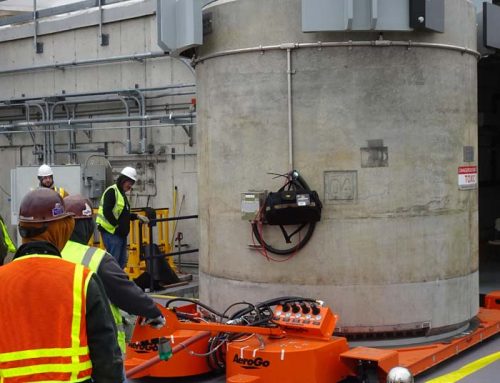
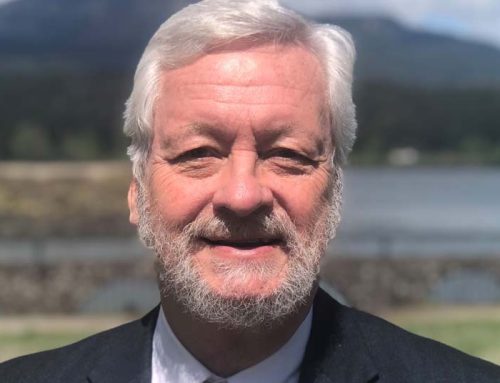

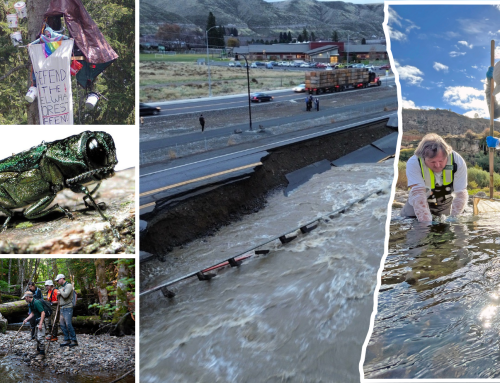
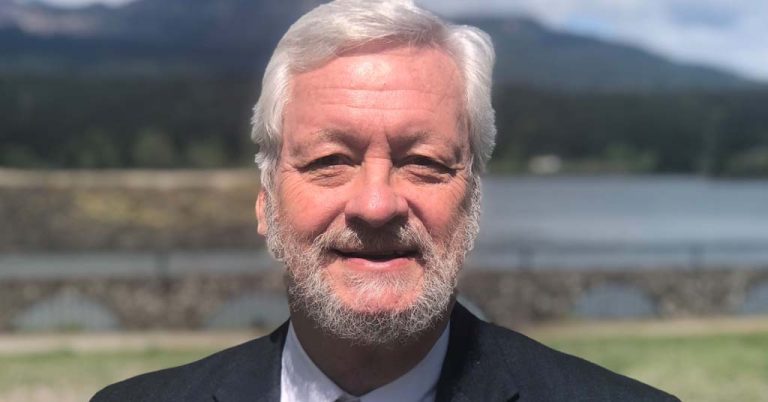


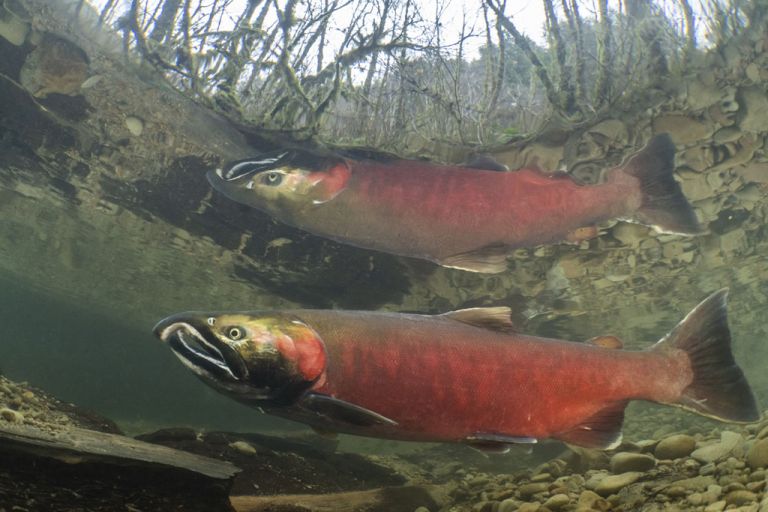


You need to be a part of a contest for one of the best
sites online. I’m going to recommend this blog!
There’s definately a lot to know about this subject.
I like all the points you’ve made.
Agen Slot Joker123 Terpercaya in Indonesia
Speaking of existing trends, internet technological innovation is becoming more superior which has made
the online gambling market grow. In case you are
enthusiastic about trying slot games, we would advise a best
in addition to trusted online wagering site in Indonesia known as Joker123.
This provider offers various types regarding games which are regarding
international standard, almost all available games are
usually guaranteed to become official as properly as
quality.